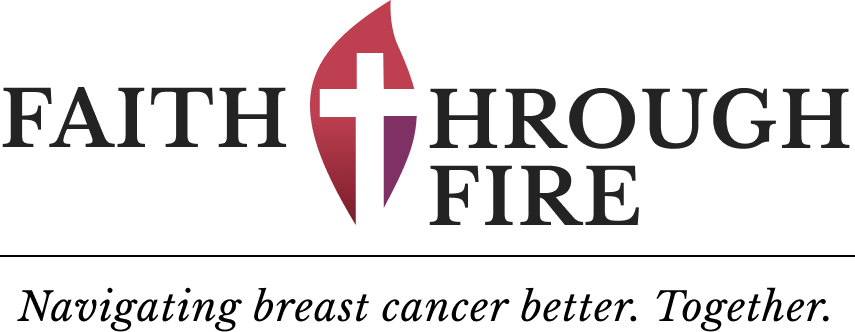Mental Healing After Breast Cancer: Navigating Mental Health Beyond Survival

Breast cancer treatment is a journey that demands incredible strength, but what happens after treatment ends? Many survivors find themselves at a crossroads, unsure of how to reclaim their lives and move forward. If you’re feeling lost or struggling with lingering fears and uncertainties, know that you’re not alone—and there is hope for healing and thriving.
Why Post-Treatment Survivorship Feels So Hard
After completing treatment, many survivors expect to feel relief and joy, but instead, they encounter unexpected emotions like fear, grief, or even guilt. These feelings are normal. Here’s why:
-
- Loss of Structure: During treatment, your life was guided by appointments, medical teams, and clear goals. Afterward, the absence of structure can leave you feeling adrift.
- Lingering Health Concerns: The fear of recurrence or side effects from treatment can weigh heavily on your mind.
- Identity Shift: Many survivors struggle with redefining themselves beyond their cancer diagnosis.
- Unresolved Trauma: The physical and emotional toll of treatment can leave scars that require intentional healing.
If any of these resonate with you, know that healing is not only possible but also essential for reclaiming your sense of self.
How Mental Health Shapes Your Recovery
Good mental health is a cornerstone of post-treatment recovery. Addressing the emotional impact of breast cancer treatment is just as vital as physical recovery. Here are some ways mental health affects your journey:
Resilience: Strengthening your mental health equips you to cope with future challenges.
Physical Healing: Reduced stress and anxiety can improve physical recovery and overall wellbeing.
Relationships: Emotional healing can foster stronger, more meaningful connections with loved ones.
Empowerment: Facing and overcoming emotional struggles helps you regain confidence and control over your life.
Steps to Improve Mental Health Post-Treatment
While the journey to mental wellness may feel daunting, small, intentional steps can make a big difference. Here are practical ways to start:
- Acknowledge Your Feelings
It’s okay to feel scared, angry, or uncertain. Give yourself permission to process these emotions without judgment. Writing in a journal or talking to a trusted friend can help. - Seek Professional Support
Therapists who specialize in trauma or survivorship can provide tools to navigate this unique chapter. Look for mental health professionals with experience in cancer recovery. - Connect with a Community
Joining a support group or survivorship program can help you feel understood and less isolated. Sharing your experiences with others who “get it” is incredibly validating. - Reclaim Your Body
Engage in gentle physical activity, such as yoga, walking, or swimming, to rebuild strength and reconnect with your body. Exercise releases endorphins, which naturally boost your mood. - Practice Mindfulness
Mindfulness techniques like meditation or deep breathing can reduce anxiety and improve emotional regulation. Even five minutes a day can make a difference. - Set New Goals
Start small. Whether it’s picking up a hobby, volunteering, or pursuing a career goal, finding purpose can reignite your passion for life.
The Power of Addressing Unresolved Trauma
Trauma from a breast cancer diagnosis and treatment often lingers long after the physical symptoms subside. Ignoring these feelings can prevent you from fully healing. Here’s why addressing trauma matters:
- Breaking the Cycle: Unresolved trauma can keep you in a loop of fear and avoidance. Processing these emotions allows you to move forward.
- Building Confidence: Facing your fears fosters a sense of empowerment and self-assurance.
- Enhancing Relationships: Letting go of anger or grief can strengthen your connections with others.
- Living Fully: Addressing past pain frees you to embrace life with joy and meaning.
Programs like Faith Through Fire’s Survivorship Bootcamp are designed to help survivors work through unresolved trauma, replace fear with hope, and create a roadmap for thriving.
Signs You May Need Extra Support
It’s important to recognize when your struggles go beyond what you can manage alone. Here are some signs you may benefit from additional help:
- Persistent feelings of sadness, anxiety, or anger
- Difficulty finding joy in activities you used to enjoy
- Trouble concentrating or making decisions
- Isolation from loved ones
- Physical symptoms like fatigue or chronic pain with no clear cause
Seeking support is a sign of strength, not weakness.
Thriving After Treatment: A Survivor’s Roadmap
Rebuilding your life after breast cancer is a process that requires patience, but it’s also an opportunity to rediscover your resilience and strength. Here’s a roadmap to guide your journey:
- Reflect: Take time to acknowledge how far you’ve come and the challenges you’ve overcome.
- Reconnect: Rebuild relationships and find a community of like-minded survivors.
- Reimagine: Envision a future that excites and inspires you.
- Reclaim: Take back control of your life by setting goals and pursuing passions.
Faith Through Fire’s Survivorship Bootcamp
If you’re looking for guidance and support, consider joining our Survivorship Bootcamp. This program is specifically designed to help breast cancer survivors like you navigate life after treatment.
Through interactive workshops, expert advice, and a community of supportive peers, you’ll learn how to:
- Address unresolved trauma
- Build mental and emotional strength
- Create a path to a thriving, meaningful life
Visit HERE to learn more about how the Survivorship Bootcamp can empower you to reclaim your life and thrive beyond survival.
Conclusion
Life after breast cancer treatment is a journey filled with challenges, but it’s also an opportunity to grow stronger and discover a renewed sense of purpose. By addressing your mental health, processing unresolved trauma, and connecting with resources like Faith Through Fire’s Survivorship Bootcamp, you can build a life that is not only full but truly fulfilling.
If you’re ready to take the first step toward thriving, reach out to us today. You don’t have to navigate this journey alone—we’re here to help.
